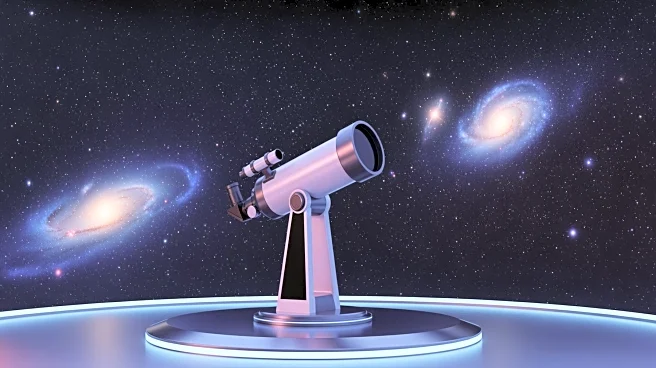Rapid Read • 8 min read
David Baron's book, 'The Martians,' delves into the historical obsession with Mars during the turn of the 20th century. The narrative focuses on a group of astronomers and enthusiasts who believed they had discovered evidence of life on Mars. This fascination permeated American society, influencing advertisements, theater, and social gatherings. The book highlights key figures such as Percival Lowell, a prominent New England textile heir, who was instrumental in popularizing the idea of Martian life. Lowell's theories were based on observations by Italian astronomer Giovanni Schiaparelli, who identified 'canali' or channels on Mars, which were misinterpreted as man-made canals by the Anglo-American press. This led to widespread speculation about an advanced Martian civilization.
AD
The book sheds light on how scientific theories, even when speculative, can capture the public imagination and influence cultural narratives. The fascination with Mars during this period reflects broader themes of exploration and the human desire to find life beyond Earth. It also underscores the role of media in shaping public perception, as newspapers of the time often presented speculative theories as fact. This historical episode is a reminder of the impact of scientific communication and the potential for misinformation. The story of 'The Martians' also highlights the intersection of science, culture, and media, offering insights into how scientific ideas can transcend their original context to become part of popular culture.
While the book focuses on historical events, it prompts reflection on current scientific endeavors and the search for extraterrestrial life. As space exploration advances, with missions to Mars and beyond, the themes explored in 'The Martians' remain relevant. The book encourages readers to consider how contemporary scientific discoveries might shape future cultural narratives and societal beliefs. It also raises questions about the responsibility of scientists and media in communicating complex ideas to the public.
The book touches on ethical considerations, such as the portrayal of Martians as a 'morally superior' race, reflecting the racial attitudes of the time. This aspect invites readers to examine how scientific theories can be influenced by cultural biases and how these biases can affect the interpretation of scientific data. The historical context of 'The Martians' provides a lens through which to view current discussions about diversity and representation in science.
AD
More Stories You Might Enjoy











